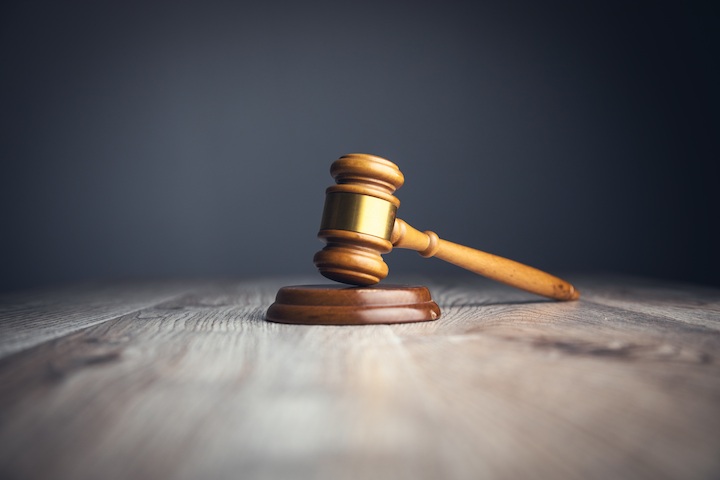Grand larceny charges in North Carolina are serious offenses that can carry stiff penalties. Depending…
As citizens, it is essential to understand the nuanced differences between reasonable suspicion vs probable cause in North Carolina to ensure our rights are protected. That’s why our criminal defense attorneys at the Law Offices of J.M. Kotzker, are sharing our insights about the complexities related to understanding reasonable suspicion and probable cause in drug crimes, drunk driving cases, or other scenarios in the context of North Carolina law.
What is Reasonable Suspicion?
Reasonable suspicion is a legal standard used in criminal law that falls below the threshold of probable cause but is still necessary for certain law enforcement actions. It refers to the belief, based on specific facts and circumstances, that a person may be involved in illegal activities or poses a threat to public safety.
Unlike probable cause, which requires a higher level of hard evidence, reasonable suspicion is a lower standard that allows law enforcement officers to briefly detain an individual or conduct a limited search for the purpose of further investigating potential illegal activity.
Role of Objective Reasonableness
Objective reasonableness means that the suspicion a crime has been committed must be based on facts and information that would lead a reasonable person, under similar circumstances, to believe that the action taken by the officer was justified. The objective reasonableness standard helps safeguard individuals' rights and ensures that law enforcement actions are not based on gut feeling or subjective and arbitrary factors.
Key Factors for Reasonable Suspicion
Several key factors contribute to establishing reasonable suspicion in the context of law enforcement.
Articulable Facts
Reasonable suspicion means that law enforcement officers must be able to articulate the reasons for their suspicion and provide factual information supporting their belief.
Observations and Behavior
Officers may consider the behavior, actions, and appearance of an individual when assessing reasonable suspicion. Suspicious behavior, unusual movements, furtive gestures, or attempts to evade law enforcement can contribute to reasonable suspicion.
Information and Tips
Information received from reliable sources, informants, or anonymous tips can be taken into account. However, the credibility and veracity of the source may influence the weight given to the information in establishing reasonable suspicion.
Geographic Factors
The location and context of the encounter can be relevant in determining reasonable suspicion. High-crime areas or places known for illegal activities may heighten an officer's suspicions, but mere presence in such an area is not enough to establish reasonable suspicion on its own.

Time and Circumstances
The time of day or night, along with the circumstances surrounding the encounter, can contribute to the reasonable suspicion analysis. For example, suspicious behavior that occurs during late-night hours in an area known for drug trafficking may raise the level of suspicion.
Training and Experience
An officer's training and experience can play a role in evaluating reasonable suspicion. Their expertise in recognizing patterns of criminal activity or familiarity with specific modus operandi may influence their assessment.
Examples of Reasonable Suspicion Situations
It is essential to understand the various situations in which reasonable suspicion may arise and the factors that contribute to its establishment.
Scenario 1: Suspicious Behavior in a High-Crime Area
Imagine finding yourself in a neighborhood notorious for its high crime rate. As you navigate through the area, you notice an individual who constantly looks over their shoulder, engages in quick exchanges with multiple people, and displays signs of nervousness. What does this behavior signify, and how does it relate to reasonable suspicion?
By examining the articulable facts and the context in which the behavior occurs, we gain a better understanding of how law enforcement officers assess the situation and the justifications they rely upon when initiating an investigation or detaining individuals.
Scenario 2: Matching Suspect Description
In the aftermath of a crime, law enforcement often receives a detailed description of the suspect involved. As officers patrol the area, they come across an individual who bears a striking resemblance to the given description. How does this matching suspect description influence the concept of reasonable suspicion?
These details along with corroborating factors are considerations that must be taken by law enforcement officers to ensure that just a hunch or just having the matching description alone is not the sole basis for suspicion.
Scenario 3: The Odor of Illegal Substances
Imagine encountering a situation where the unmistakable scent of marijuana fills the air as you walk past a group of individuals or approach a vehicle. Can the mere detection of the odor of illegal substances provide law enforcement officers with reasonable suspicion?
If an officer detects the odor of illegal substances, it may contribute to establishing reasonable suspicion to investigate for drugs, but it is usually not enough on its own to establish probable cause for a search or arrest. Other factors, such as the officer's training and experience, observations of suspicious behavior, or other objective evidence, may need to be considered to establish reasonable suspicion.
The Role of a Police Officer in Reasonable Suspicion
The role of a police officer in determining reasonable suspicion is crucial in the criminal justice system. As law enforcement professionals, officers are responsible for making initial assessments based on the specific facts and circumstances they encounter. When officers do not investigate properly or follow procedures, the accused constitutional rights are being violated.

Knowledge and Training of the Police Officer
Law enforcement officers' training encompasses legal standards, investigative techniques, and the recognition of suspicious behavior and indicators of criminal activity. This knowledge base allows officers to make informed judgments and exercise their discretion appropriately when evaluating whether reasonable suspicion exists.
Context and Surrounding Circumstances
Police officers should evaluate the totality of the circumstances at hand, taking into account factors such as time, location, behavior, and available information. By assessing the situation holistically, officers can better understand the context in which suspicious behavior or other factors are observed, helping them make informed decisions about whether reasonable suspicion is present.
Understanding Probable Cause
Probable cause is a higher threshold than reasonable suspicion and is necessary to support more intrusive law enforcement actions, such as making arrests or obtaining search warrants.
Criteria for Establishing Probable Cause
To establish probable cause, there must be sufficient facts and circumstances that would lead a reasonable person to believe that a crime has been committed or that a specific individual is involved in criminal activity.
Aggregated Information and Corroboration
Probable cause often relies on the aggregation of multiple pieces of information or evidence that, when combined, create a strong belief that a crime has been committed or that a particular individual is involved.
Expertise and Training of the Officer
Officers receive specialized training in investigative techniques, evidence collection, and legal standards. Their experience and knowledge in recognizing patterns of criminal behavior or interpreting complex information contribute to their ability to establish probable cause accurately.
Information from Reliable Sources
Probable cause can be established by information obtained from reasonably trustworthy information. These sources may include eyewitnesses, informants with a proven track record of providing accurate information, or evidence gathered through lawful means.
Probable Cause vs Reasonable Suspicion: A Comparison
Probable cause and reasonable suspicion are two distinct legal standards used in the criminal justice system, each serving a specific purpose. Understanding the difference between reasonable suspicion vs probable cause is crucial for comprehending the varying levels of authority and evidence required.
Level of Certainty and Evidence Required
When comparing reasonable suspicion, probable cause, and factors that would contribute to a search of property, the main difference is the amount of concrete evidence needed.
Probable cause demands a reasonable belief that is supported by sufficient facts and circumstances indicating the likelihood of criminal activity or the involvement of a specific individual. In contrast, reasonable suspicion requires a belief that is based on specific articulable facts, but the level of certainty is not as high as that required for probable cause.
Impact on Law Enforcement Officials
Law enforcement officers must have reasonable suspicion to initiate limited investigatory stops or detentions, allowing them to briefly detain individuals or conduct brief searches for the purpose of further investigation. Reasonable suspicion provides a certain level of authority for officers to take initial action, but it does not grant them the same powers as probable cause.
Probable cause, however, empowers law enforcement officials to take more intrusive actions, such as making arrests or obtaining search warrants. It requires a higher level of certainty and a stronger evidentiary basis before these more extensive actions can be taken.
Search Warrants and When They Are Required
Search warrants play a crucial role in safeguarding individuals' Fourth Amendment rights within the criminal justice system.
Definition and Purpose of Search Warrants
A search warrant is a legal document issued by a judge or magistrate that authorizes law enforcement officials to conduct a search of a specific location or seize particular items. The purpose of a search warrant is to ensure that searches and seizures are conducted in a lawful and constitutional manner, with a proper basis of probable cause.
Requirement of Probable Cause
To obtain a search warrant, law enforcement officers must demonstrate to a judge or magistrate that there is probable cause to believe that a crime has been committed and that evidence or contraband related to the crime can be found in the specified location. Probable cause requires a reasonable belief, supported by sufficient facts and circumstances, that a search will lead to the discovery of evidence of a crime.
Fourth Amendment Protection
The Fourth Amendment mandates that search warrants must describe with particularity the place to be searched and the persons or things to be seized. This requirement ensures that the scope of the search is clearly defined and minimizes the risk of overly broad, general, unreasonable searches that infringe upon individual privacy rights.
Exceptions to Search Warrant Requirement
While search warrants are generally required for searches and seizures, there are certain exceptions when law enforcement officers can conduct warrantless searches. These exceptions include situations such as consent searches, exigent circumstances (e.g., hot pursuit of a suspect, risk of imminent harm), searches incident to a lawful arrest, and searches of items in plain view.
Protect Yourself From an Unconstitutional Search Warrant and Safeguard Your Rights with The Law Offices of J.M. Kotzker
If you are facing criminal charges where you believe officers did not have sufficient evidence to conduct a search, our knowledgeable criminal defense attorneys can help. Take charge of safeguarding your rights and protecting yourself from the potential consequences of an unconstitutional search warrant. At the Law Offices of J.M. Kotzker, our drug crime defense lawyers are committed to ensuring that your Fourth Amendment rights are respected and upheld.
Take action now to protect your privacy, property, and personal freedoms by calling us today at (919) 439-5104 or filling out the contact form below to get started.
